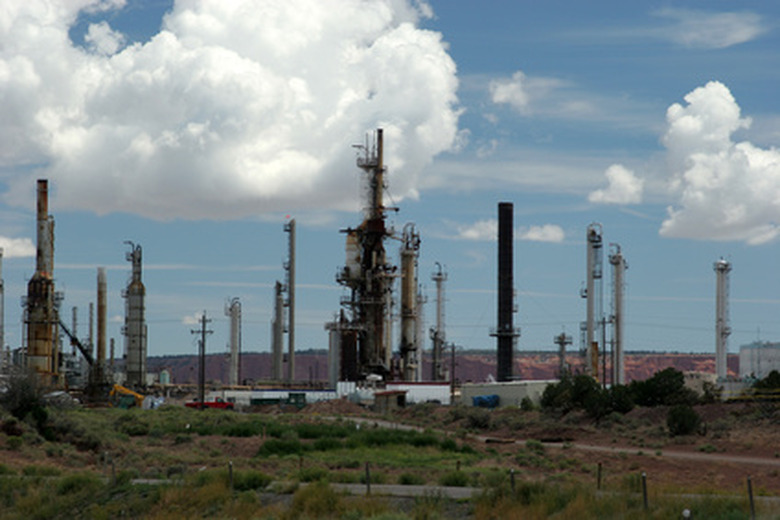The Advantages & Disadvantages Of Non-Renewable Energy Sources
Non-renewable energy makes up 95 percent of the world's electricity needs. The U.S. Department of Energy predicts that by the year 2030, the use of these energy sources will increase by 35 percent. Heavily integrated into our culture—non-renewable energy has a tremendous number of advantages, as well as several disadvantages.
Finite
Finite
The reason that non-renewable resources are "non-renewable" is because there is a finite amount available on earth. Fossil fuels—the most commonly used resource—will eventually cease to exist on the planet if constantly consumed; this means that eventually, new, alternative energy sources will be needed.
Environment
Environment
Another huge downside to fossil fuels is that they release carbon dioxide when burned. The release of carbon dioxide creates a negative effect upon the environment—releasing tons of pollution that is harmful to the planet.
Alternative energy sources produce almost no carbon dioxide—if any at all—when compared with fossil fuels, making them consistently sought after.
Pollution
Pollution
Pollution in cities is also a common problem in addition to carbon dioxide. The nitrous gases and sulphur dioxides produced, create large amounts of pollution, especially if confined to small areas, such as large cities. This can lead to events, such as acid rain.
Cheap
Cheap
Fossil fuels are currently one of the cheaper sources of energy due to the current abundance on earth. Although this will one day change, the current infrastructure is based upon fossil fuels. This means that they are currently cheaper to produce—as well as import and export—than what investing in alternative technologies is for companies.
Individual users of alternative energies tend to pay higher prices due to the lack of availability of technology. Those that drive hydrogen cars can often pay prices far more than what filling up a traditional gasoline-powered car will pay.
Power-Plants
Power-Plants
Fossil fuel plants maintain the ability to generate vast amounts of power. This is a distinctive advantage—since placing one plant in a regional location can potentially power homes and buildings for thousands of miles.
Cite This Article
MLA
Johnson, Steve. "The Advantages & Disadvantages Of Non-Renewable Energy Sources" sciencing.com, https://www.sciencing.com/the-advantages-disadvantages-of-non-renewable-energy-sources-12293766/. 22 September 2017.
APA
Johnson, Steve. (2017, September 22). The Advantages & Disadvantages Of Non-Renewable Energy Sources. sciencing.com. Retrieved from https://www.sciencing.com/the-advantages-disadvantages-of-non-renewable-energy-sources-12293766/
Chicago
Johnson, Steve. The Advantages & Disadvantages Of Non-Renewable Energy Sources last modified March 24, 2022. https://www.sciencing.com/the-advantages-disadvantages-of-non-renewable-energy-sources-12293766/
